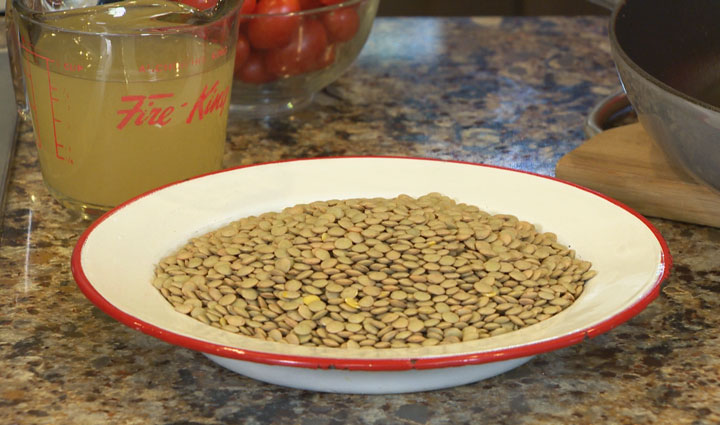SASKATOON – A team of researchers from the University of Manitoba have cooked up a simple but new technique. The Canadian Light Source (CLS) facility was used to help by performing experiments on microwaved lentils, all in the name of science.

Lentils are an excellent source of nutrients and a key part of diets worldwide so reducing their somewhat-long cooking times is desirable.
“Long cooking time is one of the drawbacks of pulses,” lead researcher Dr. Digvir Jayas said.
“People soak their pulses to reduce their cooking times and teams have looked at infrared and other treatments to help, but no one had looked at microwaves.”
READ MORE: Protein-packed pulses take prominence
The effect of microwave treatment to speed up the cooking times of red lentil, chickpea, pigeon pea, mung bean and pinto bean were determined in the study.
Researchers found that the cooking times of microwave-treated pulses were significantly lower than that of the control samples.

Get breaking National news
In order to refine and to understand the effects on a chemical and molecular level, the team brought their treated pulses to the national research facility in Saskatoon.
“Projects like this show the world that unique infrastructure in Canada can be used for unique studies,” Jayas said.
Using advanced imaging techniques at CLS, the team pinpointed how proteins, carbohydrates and fats shifted due to the microwave treatment, indicating exactly how faster cooking times were achieved.
CLS said similar data could be used to ensure that microwaves have no negative effects on the nutrient profile of pulses.
READ MORE: Better Winnipeg: Researchers serve-up unique study on food
Next up the menu, the team plans to conduct a study on preparation times of pulse crops impacted by freezing. The results would be particularly useful to Canadian farmers who grow around 65 per cent of the world’s supply, mainly in Saskatchewan.
CLS has hosted researchers from 28 countries and provided a service critical in over 2,900 scientific publications.









Comments